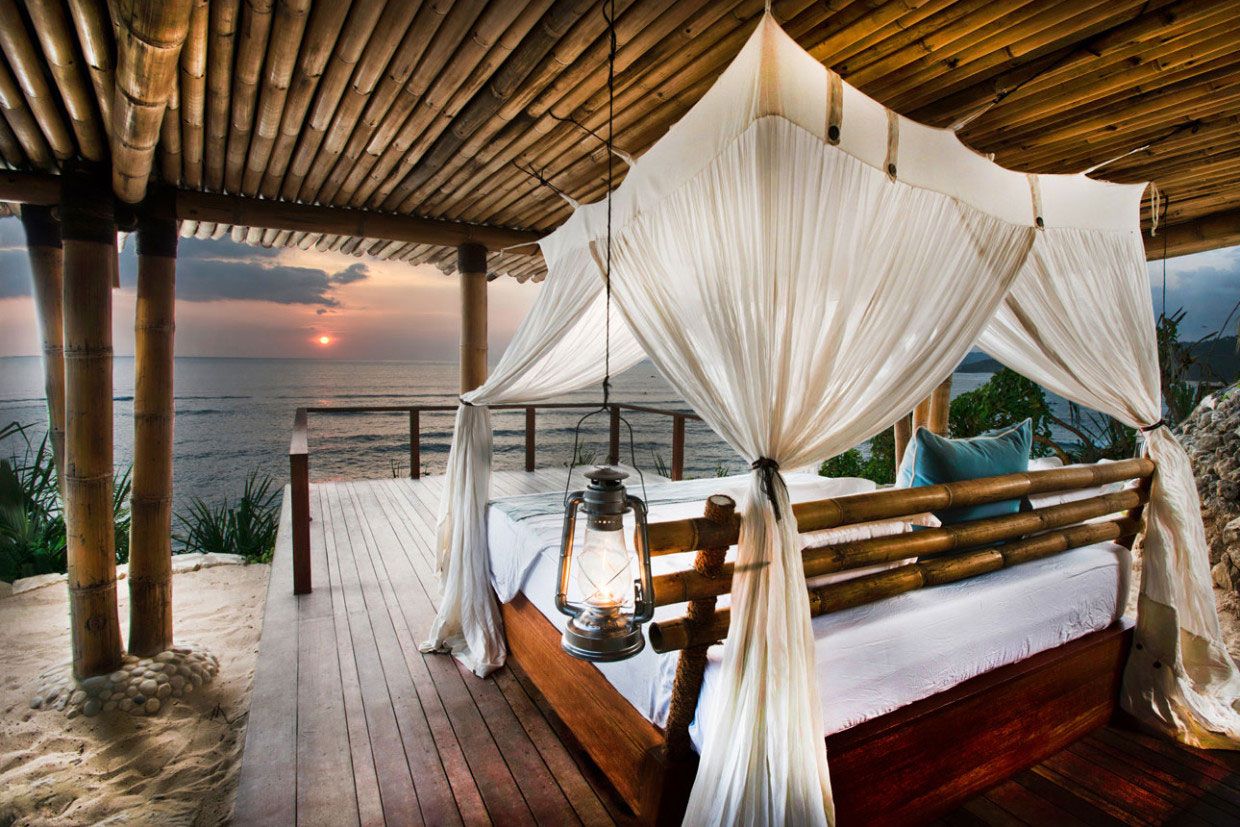
It sounds like hyperbole, but it's not; Nihiwatu is the best island resort in the world. I am convinced of this, and I feel confident in claiming so after visiting more than four dozen other stunning excursions around the globe from the Galapagos to Sri Lanka. A few months ago while touring Indonesia and Malaysia, I resolved to visit Sumba, an island twice the size of Bali and home to Nihiwatu, the only luxury property on the island. Unlike Bali, which is lush, balmy, and teeming with pockets of eager tourists, Sumba is pristinely unadulterated. This is exactly its allure, and why the resort’s tagline is: "On the edge of wildness."

After a winding two-hour drive from the airport through pastoral landscapes and quiet dirt road villages, our van crested the vista that overlooks the 560 acres of Nihiwatu. The panoramic view of a crystal water harbor curving around beige beaches and a thicket of palm trees was spectacular. Just a few miles later, we were at the reception landing of the property being greeted by half a dozen cheerful staff. I was consistently impressed by the flawless hospitable nature of the staff, 95 percent of which are native Sumbanese. "We just train them from start to finish," said Chris Bromwich, Nihiwatu's GM. "We've got a lot of respect and mutual commitment here for the people and the island."

Bromwich's causal assertion is an understatement. Nihiwatu's Sumba Foundation is the non-profit arm of the resort, created in 2001. Since then, the Foundation has opened more than 15 primary schools, built 60 water wells, supplied 172 villages with clean water, and reduced Malaria by 85 percent in the villages surrounding the hotel. About 20,000 Sumbanese benefit from the foundation's health clinics. Despite its immense impact on the Sumbanese, the resort only subtly brings up their humanitarian efforts to inquisitive guests. For the guest that never leaves the property’s stunning shores, the notable effect of the foundation is simply interwoven into the guest experience of dedicated and appreciative staff members who live in nearby villages.

The property is expansive. A quick tour of Ombak restaurant, some of the 21 villas, Nio Beach Club, and Menara Bale took more than an hour, filled with turn upon turn of spectacular views and an overall emerging feeling of sweet surrealism. The materials that make up the villas, the craftsmanship of each room, and the impeccable detail of design—down to the bathroom sinks and the place mats at the dinner table—all seem unfathomable on this brink of wildness. It adds to Nihiwatu's mysticism, certainly.

The resort is like a dream home where every luxury has been personally sourced, despite its extreme location. Nihiwatu's new owner Chris Burch, the co-founder of the legacy luxury brand Tory Burch, purchased the property in 2013. Since then, he’s been attempting, and succeeding, in spoiling guests as much as the resort’s natural surroundings do. The property will expand this spring with the treehouse Jungle Spa and an additional 11 villas.

“Many guests of Nihiwatu stay for two weeks, even a month or two,” said General Manager Bromwich. I can understand why. The resort’s unending options for land, sea, and on-property experiences could fill weeks of adventure. One of my favorite excursions was the Nihi Oka Morning Nature Trek, a two-hour hike across rice paddies and through villages of traditional raised Sumbanese-thatched huts. These huts have been built the same way for centuries. My small group was able to climb into a few of the homes escorted by the kepala desa (the village elder).

These communities are not tourist attractions, and we only had access to them because of our native Sumbanese guide. Our trek ended on a treehouse dining deck above a crystal beach where we enjoyed a breakfast surrounded by strands of decorative orchids. The entire conversation among my four Western companions was focused on the incredible natural beauty and cultural experience of the morning.

That evening, I rode a horse alongside a Nihiwatu horseman on the 1.5 mile private beach. To my delight, the horses relished dashing in and out of the waves, and I watched the eight or so surfers (10 is the limit here) ride the famous waves that so many of them travel the world to experience. “How does it get more sublime than this?” I asked Bromwich later at dinner. He replied, “Everyone that comes here asks me that. I think it doesn’t, so people just come back soon.” Nihiwatu’s setting and luxury is as incredibly otherworldly as the untouched culture of Sumba.













